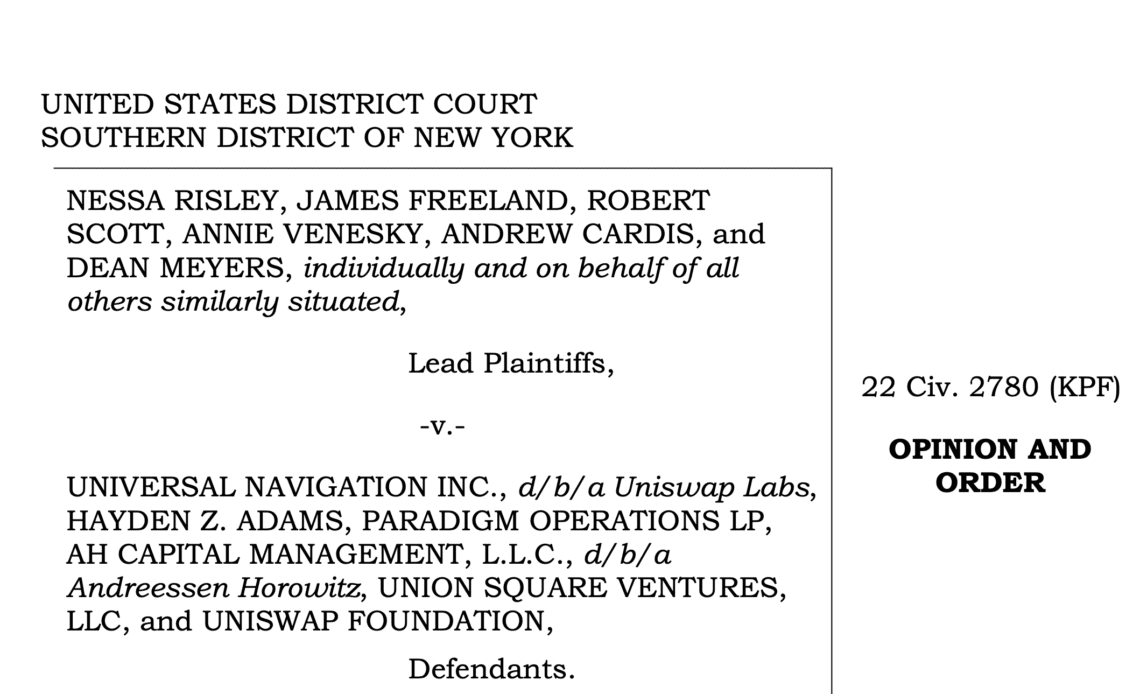The United States District Court of Southern New York has dismissed a class-action suit against Uniswap Labs, its CEO, foundation and venture capital backers brought by plaintiffs who claimed they lost money due to scam tokens on the decentralized cryptocurrency exchange. Judge Katherine Polk Failla, who handed down the dismissal, is also hearing the Securities and Exchange Commission’s case against Coinbase.
The suit was brought by six individuals who bought tokens on Uniswap between December 2020 and March 2022. They argued on the behalf of a “nationwide class of users” that Uniswap Labs controlled liquidity pools on the protocol, including those created by the scammers they lost money too.
The suit was filed in April 2022. The defendants were demanding the recission of the (smart) contracts they entered into buy buying the scam tokens, with compensation, under the Securities Act of 1933 and Securities Exchange Act of 1934.
The plaintiffs argued that their claim was backed up by the fact that Uniswap held “liquidity provider funds and newly created tokens in Uniswap’s proprietary core contracts,” used routers it controlled to process transactions on the protocol and issued liquidity tokens when pools were created. In addition, the plaintiffs held that the defendants “likely” held at least 88% of Uniswap’s UNI (UNI) governance tokens, although they had no actual knowledge of token ownership.
Related: Binance CEO warns of phishing scams as Uniswap founder gets hacked
The judge said in her order that neither side knew the identities of the scammers and in place of suing the scammers for unlawful solicitation, the plaintiffs were suing the defendants for statements made on social media:
“Undaunted, they now sue the Uniswap Defendants and the VC [venture capital] Defendants, hoping that this Court might overlook the fact that the current state of cryptocurrency regulation leaves them without recourse, at least as to the specific claims alleged in this suit.”
The court did not overlook that fact:
“The Court declines to stretch the federal securities laws to cover the conduct alleged, and concludes that Plaintiffs’ concerns are better addressed to Congress than to this Court.”
The judge commented in more general terms as well. Writing about the plaintiffs’ allegations concerning the core and router contracts, she said:
“It defies logic…
Click Here to Read the Full Original Article at Cointelegraph.com News…
